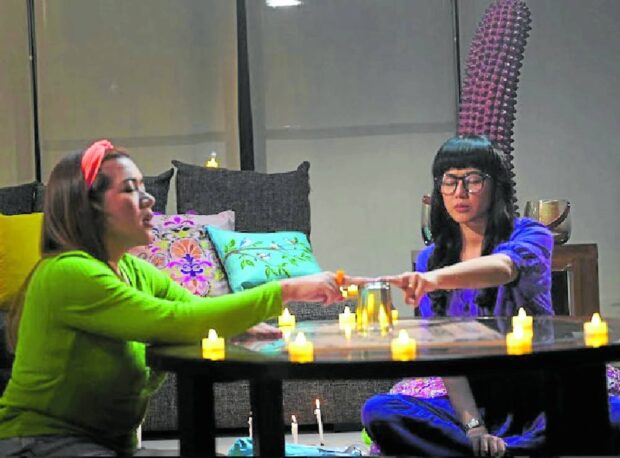Actor-director Fifth Solomon, who was diagnosed with a number of mental and behavioral disorders in 2021, said he considered doing comedy as both a form of healing and release.
“I chose to laugh away the drama in my life, or make people laugh through it. That’s how I look at creating comedy. I usually choose topics that are dark and make fun of them,” he told Inquirer Entertainment during a recent virtual chat. “Sometimes, stories are funnier and more enjoyable if they come from real-life experiences. Ang masasakit, masarap pagtawanan. Comedy reminds me to not take life too seriously.”
Fifth, 31, said he was diagnosed with bipolar disorder, panic disorder, depression and attention-deficit/hyperactivity disorder. He has been under medication for more than a year now. The story of Solomon’s film, “Single Bells,” is likewise culled from his own experience. “I’ve been single for eight years. There were moments when people would make you feel alone, especially when they would ask you, ‘When are you going to start dating again?’ Also, they expect you to look sad all the time. I wrote this story because I wanted to break stereotypes. I want to say that even if you’re single, you can still be happy. You are complete. You are more than enough,” he stressed.
“Single Bells,” starring Alex Gonzaga and Angeline Quinto, is an entry to the 1st Summer Metro Manila Film Festival, which runs until April 18.
The film is about two single ladies, Rose Anne (Gonzaga) and Rose Mae (Quinto). While Anne swears to stay forever single after experiencing a major heartbreak, Mae is always ready to date because she feels that Mr. Right is just around the corner.
“I am both Anne and Mae,” Solomon said. “When I was single, I experienced both perspectives. I would go out on dates, but I was scared to fall in love and experience heartbreak. Since I have trust issues, I swore to be single forever, but I often felt lonely.”
More than enough
He continued: “When I was writing the story, I was also thinking about the message that I wanted to share. It was only after I directed the movie that I realized, ‘You can be in a relationship and be happy, but you can also be alone and feel more than enough.’ You can find happiness from family and friends, as well.”
Last year, Solomon took to social media to reveal the identity of his boyfriend, Sacarie Alcala. “Mahirap na masarap,” said Solomon as a way to describe the feeling of being in a romantic relationship. “You need to be considerate because your decisions will not just affect you, but also your partner. You’ll have to learn to adjust. You also learn to live simply. By this, I mean I used to post topless photos on Instagram, but now I don’t have the energy for that anymore. My life has become simple. Also, my partner is a jealous guy.”
Solomon’s debut film is 2018’s “Nakalimutan Ko Nang Kalimutan Ka,” followed by “The ExorSis” and “Dulo” in 2021. There are more projects coming up for him this year, such as the local adaptation of “My Sassy Girl” and “Three Words.”
Solomon said his experience during the pandemic triggered his mental health issues. “I felt really depressed because our movie ‘The Exorsis’ was gravely affected by the Omicron surge in 2021. I had wanted for it to be seen by as many people as possible, but we had so many restrictions, so people were still afraid to go to the movie houses,” he recalled.
Prioritize health
Solomon said he has been under medication since then, and has been struggling with its effects. “I often feel like a robot. I can’t be super happy or super sad. My friends noticed that I was no longer as animated as before. My creativity was greatly affected.”
He continued: “It’s hard, but I know I have to fight. For those who are experiencing the same thing, you really have to prioritize your health. You have to tend to your mental and emotional health the way you tend to your skin and body. Keep fighting. It’s important to seek out people who will help you become strong.
Finding love also helped him, said Solomon. “He held my hand through depression. He cheers me up when I’m sad. He never judged me, unlike other people who would say, ‘Umaarte ka lang!’ when you talk about your condition openly. My partner understands my situation and takes it seriously.” INQ



